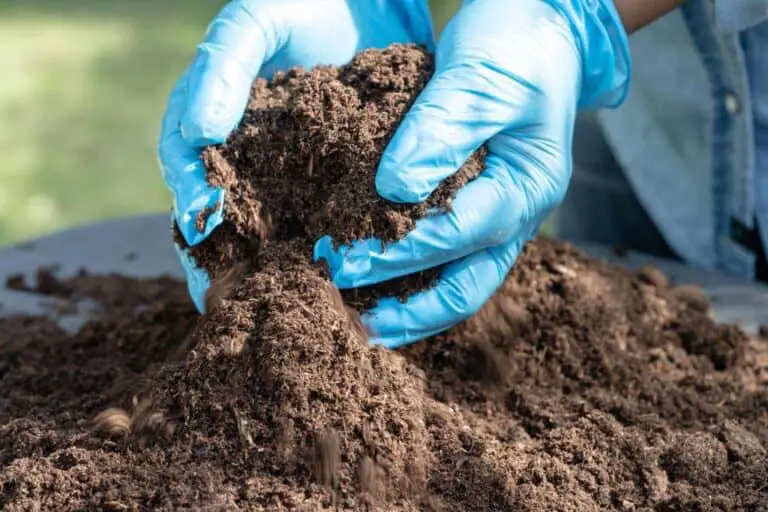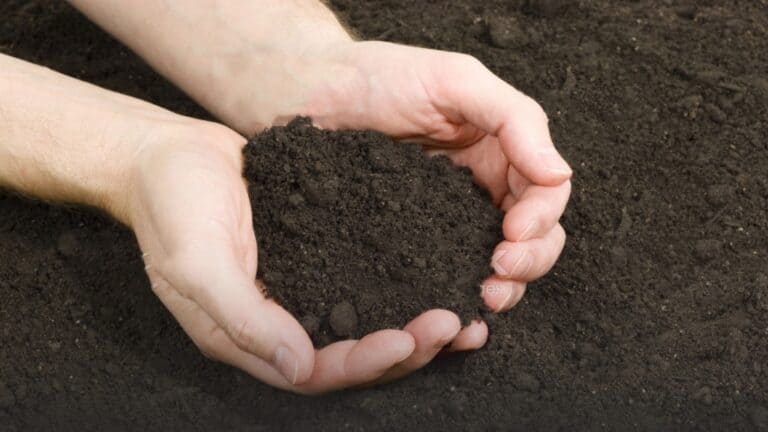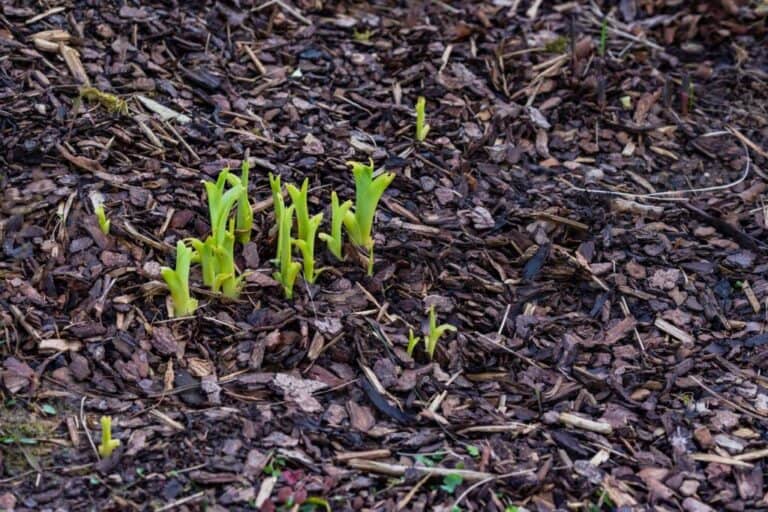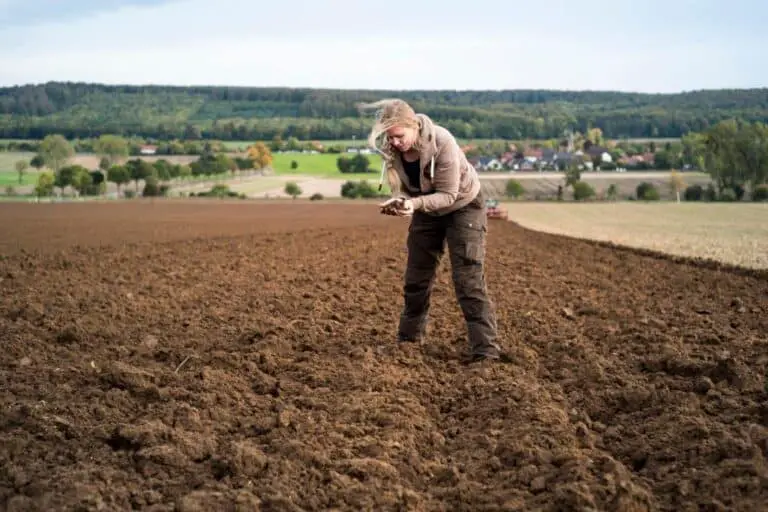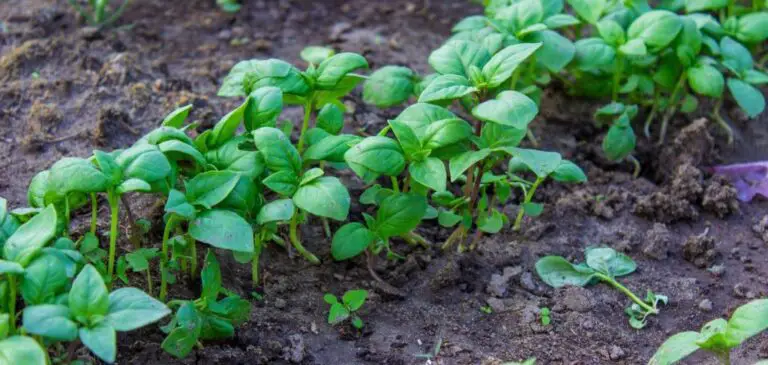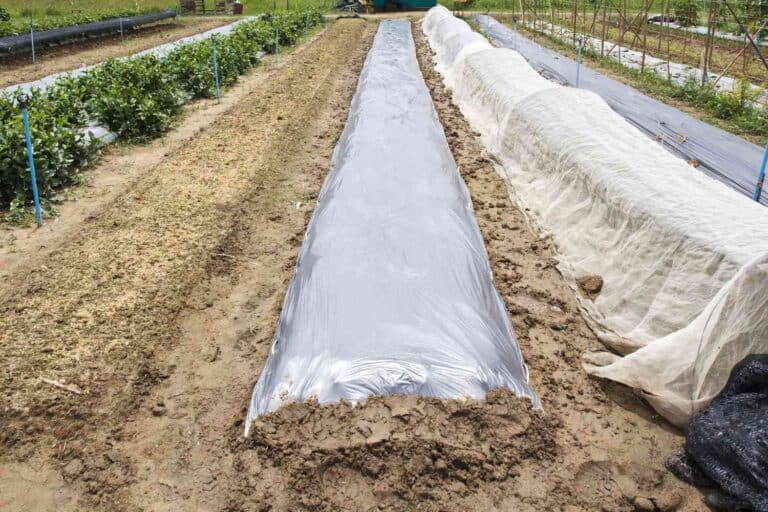Kill Weeds in Mulch: How to Get Rid of Weeds in Mulch Naturally
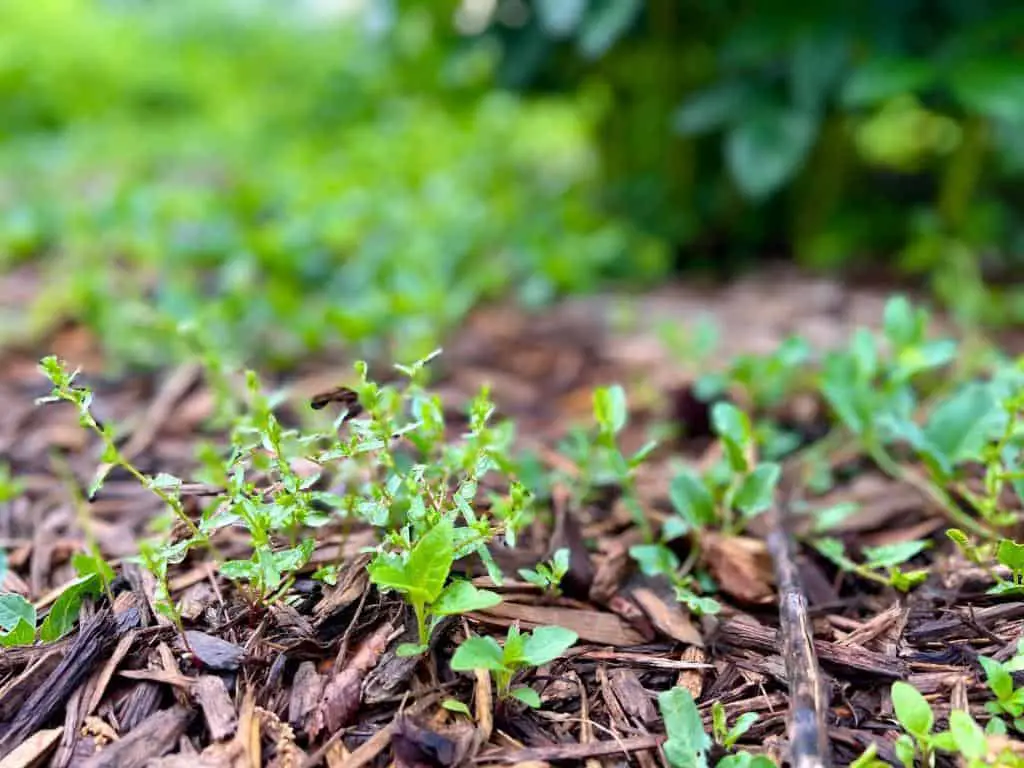
Have you ever spent hours tending to your garden, only to find that pesky weeds have invaded your beautiful mulch bed? Don’t worry, you’re not alone! Weeds can be a real nuisance, but the good news is that there are natural ways to get rid of them without using harsh chemicals.
In this article, we’ll explore how to naturally kill weeds in mulch so you can keep your garden looking beautiful all season long. So grab your gardening gloves, and let’s get started!
Understanding Mulch and Weeds
Mulch refers to any material that is spread over soil or planted areas to protect, insulate, or enrich the soil. Mulch comes in different forms, such as wood chips, straw, grass clippings, and shredded leaves. It helps keep soil moist by cutting down on evaporation and erosion. Putting mulch over weeds can also stop weeds from growing and helps keep the soil at the right temperature.
Weeds, on the other hand, are plants that grow where they are not wanted. They are considered undesirable because they compete with other plants for nutrients, light, and space. Weeds come in various shapes and sizes, and they are classified as either annuals or perennials. Annual weeds grow from seeds and die at the end of the growing season, while perennial weeds live for several years, and they spread through seeds, roots, and runners.
The relationship between mulch and weeds is one of constant conflict. While mulch provides a host of benefits to plants and soil, it can also create a favorable environment for weed growth. Mulch provides a warm and moist environment that weeds can thrive in. Therefore, understanding how to manage weeds in mulch is critical to maintaining a healthy garden or landscape.
To manage weeds in mulch effectively, it is essential to first understand the types of mulch available and their properties. Organic mulches, such as wood chips, straw, and leaves, decompose over time, which adds organic matter to the soil, improves soil structure, and increases nutrient content. Inorganic mulches, such as rocks and gravel, do not decompose and offer a longer-lasting solution to weed control. Understanding the properties of each type of mulch is crucial in determining the best type to use for your garden.
Similarly, understanding the types of weeds and their growth habits is critical in managing weeds in mulch. Annual weeds tend to grow more rapidly, while perennial weeds have deeper and more extensive root systems. Different types of weeds require different approaches to control, and understanding their growth habits helps to determine the best method to use.
Choosing the Right Type of Mulch for Weed Prevention
Mulch is an effective way to keep weeds at bay in garden beds, but not all types of mulch are created equal when it comes to weed prevention. When choosing the right type of mulch for weed prevention, there are several factors to consider.
Firstly, consider the type of plants growing in the garden bed. Different plants have different needs, and some types of mulch may not be suitable for certain plants. For example, acidic mulches such as pine needles or oak leaves may be ideal for acid-loving plants like blueberries, but could harm other plants with different soil pH requirements.
Another factor to consider is the climate and weather conditions in the area. In dry and hot climates, organic mulches like straw and hay can quickly dry out and become a fire hazard. In wet and humid climates, organic mulches can retain too much moisture, which can lead to fungal growth and root rot. In these cases, inorganic mulches like gravel or landscape fabric may be a better option.
The texture and size of the mulch is also important for weed prevention. Fine-textured mulches like shredded leaves and grass clippings break down quickly, which can create a nutrient-rich environment for weeds to grow. On the other hand, larger mulch materials like bark chips or rocks are more resistant to decomposition, which can make them more effective at suppressing weed growth.
Finally, consider the availability and cost of the mulch. Some types of mulch may be harder to come by or more expensive than others, so it’s important to find a type of mulch that fits both your budget and your needs.
How to Kill Weeds in Mulch
Mulch is an excellent addition to any garden, not only for its aesthetic appeal but also for its ability to suppress weed growth. However, even with the best intentions and the most diligent garden maintenance, weeds can still manage to infiltrate mulch beds. In such cases, there are several methods available to gardeners to kill weeds in mulch naturally.
One natural method for killing weeds in mulch is soil solarization. This process involves covering the weed-infested area with a clear plastic tarp and allowing the sun’s heat to kill the weeds over a period of several weeks. This method is particularly effective for killing weeds with deep roots or for weed-infested areas that are too large to manage by hand.
Another natural method for killing weeds in mulch is using organic herbicides made from natural ingredients such as vinegar, salt, and citrus oil. These products are effective in killing weeds without harming the surrounding plants, and are also safe for the environment. It’s important to note that while these products are natural, they can still be harmful if used improperly, so always follow the manufacturer’s instructions.
Hand-pulling weeds is another effective method for weed control in mulch beds. However, this method can be time-consuming and labor-intensive, especially if there are a lot of weeds present. To make the task easier, it’s best to pull weeds when the soil is wet or moist after rainfall or watering, as this makes it easier to remove the entire root system.
A more aggressive approach to killing weeds in mulch is by using a propane torch or flame weeder. This method involves directing a flame at the weeds, causing them to wilt and die. However, this method should be used with caution, as it can also damage surrounding plants or cause a fire if not used properly.
Finally, prevention is key to maintaining a weed-free mulch bed. Regularly adding fresh mulch to the bed can help suppress weed growth, while also providing nutrients to the plants. Additionally, regular maintenance tasks such as removing fallen leaves or debris, and maintaining the mulch level can help to prevent weed growth by reducing the amount of light and space available for weeds to grow.
How to Get Rid of Weeds in Mulch Naturally
Weeds can be a significant problem for gardeners and landscapers, and managing them can be a time-consuming and costly process. While chemical herbicides are a popular choice for many, they can also be harmful to the environment and may not be suitable for those who prefer natural or organic gardening methods. Fortunately, there are several natural methods for controlling weeds in mulch.
One effective natural method for getting rid of weeds in mulch is to use organic weed control products. These products are made from natural ingredients such as vinegar, citrus oil, and clove oil. They work by breaking down the cell walls of the weed, causing it to wilt and die. Organic weed control products are safe to use around pets and children and do not harm the environment.
Another effective method for getting rid of weeds in mulch is by using landscape fabric or plastic mulch. Landscape fabric is a woven material that lets air and water through but keeps weeds from growing. Plastic mulch is made from polyethylene and works by preventing light from reaching the soil, which inhibits weed growth. Both ways work, but landscape fabric is better for the environment because it breaks down naturally and doesn’t add to plastic pollution.
Hand-pulling weeds is another natural method for controlling weed growth in mulch. This method involves removing the weeds by hand or using a weeding tool. Hand-pulling weeds is effective but can be time-consuming, especially if there are a lot of weeds to remove. However, it is a cost-effective and environmentally friendly method that does not require the use of chemicals or machinery.
Finally, maintaining a healthy garden is one of the best ways to prevent weeds from growing in mulch. A healthy garden means healthy plants, and healthy plants can compete better with weeds for nutrients and space. Good garden maintenance practices such as regular watering, fertilizing, and pruning can help keep plants healthy and prevent weed growth.
Maintaining a Weed-Free Mulch Bed
Hey there, gardening enthusiasts! Are you tired of seeing pesky weeds popping up in your beautiful mulch bed? Don’t fret, because with a little effort and know-how, you can maintain a weed-free mulch bed all season long.
First things first, let’s talk about the importance of preventative measures. Adding a layer of fresh mulch to your bed regularly is a great way to prevent weeds from sprouting in the first place. Mulch not only provides a barrier between the soil and the outside elements, but it also deprives the weeds of the sunlight they need to grow. So, keep that mulch level topped up!
Another key factor in maintaining a weed-free mulch bed is regular maintenance. Be sure to remove any fallen leaves or debris from the bed, as these can provide the perfect environment for weeds to grow. And while you’re at it, why not take a few moments to inspect the bed for any early signs of weed growth? The earlier you catch them, the easier they’ll be to remove.
When it comes to removing weeds, there are a few natural methods you can try before reaching for harsh chemicals. For example, you could try hand-pulling the weeds, which is not only effective but also quite therapeutic! Just be sure to remove the entire root system, or the weed will simply grow back. If you have a lot of weeds to remove, it might be worth investing in a hoe or cultivator to make the job a little easier.
Another natural method for weed control is using organic herbicides made from natural ingredients like vinegar, salt, or citrus oil. These products are effective in killing weeds without harming the surrounding plants, but always follow the manufacturer’s instructions, and be careful not to use too much or it can harm the soil.
For larger areas, solarization is a great option. Simply cover the area with a clear plastic tarp, and allow the sun’s heat to kill the weeds over several weeks. This method works particularly well for weeds with deep roots, and is a natural and eco-friendly option.
What Kills Weeds Permanently but Not Plants?
When it comes to controlling weeds in your garden or lawn, it’s essential to find a solution that is effective but won’t harm your plants. One natural solution that many gardeners swear by is vinegar. While vinegar is often used as a household cleaning agent and food preservative, it can also be an effective weed killer.
Vinegar works by desiccating the foliage of the weed, essentially drying it out and causing it to die. The acetic acid in vinegar is what makes it an effective weed killer. However, it’s important to note that vinegar can also harm your plants if used in high concentrations or too frequently. That’s why it’s essential to use it carefully and in moderation.
When using vinegar as a weed killer, it’s best to use it on a sunny day. The heat from the sun can help the vinegar dry out the weed more effectively. Additionally, it’s essential to apply the vinegar directly to the leaves of the weed, being careful not to get it on any of your plants. You can do this by spraying the vinegar onto the leaves or using a brush to apply it directly.
While vinegar is an effective weed killer, it’s not a perfect solution. It can take multiple applications to completely kill a weed, and it may not work on weeds with deep roots or established plants. Additionally, it’s important to remember that vinegar can harm your plants if used too frequently or in high concentrations.

